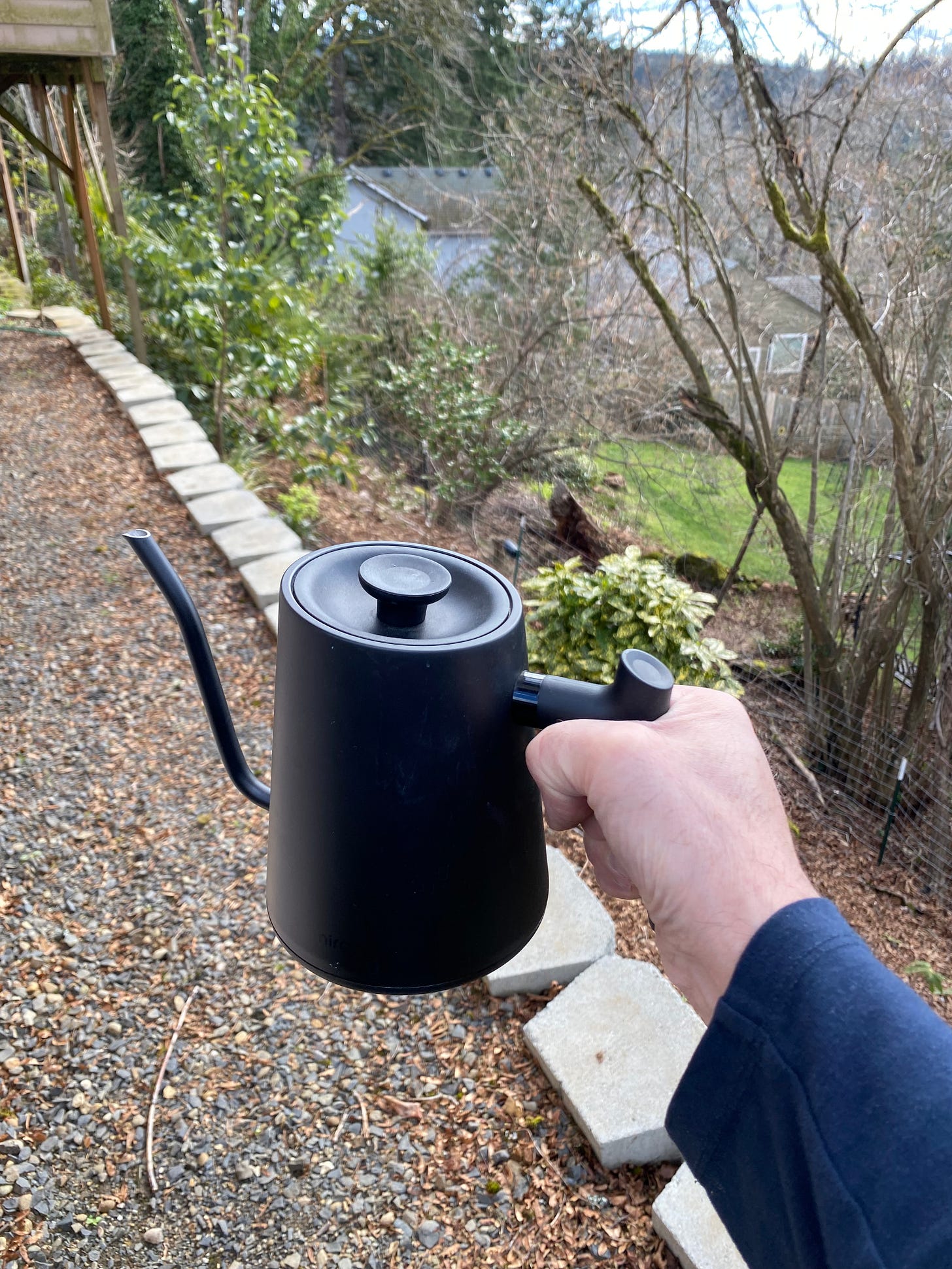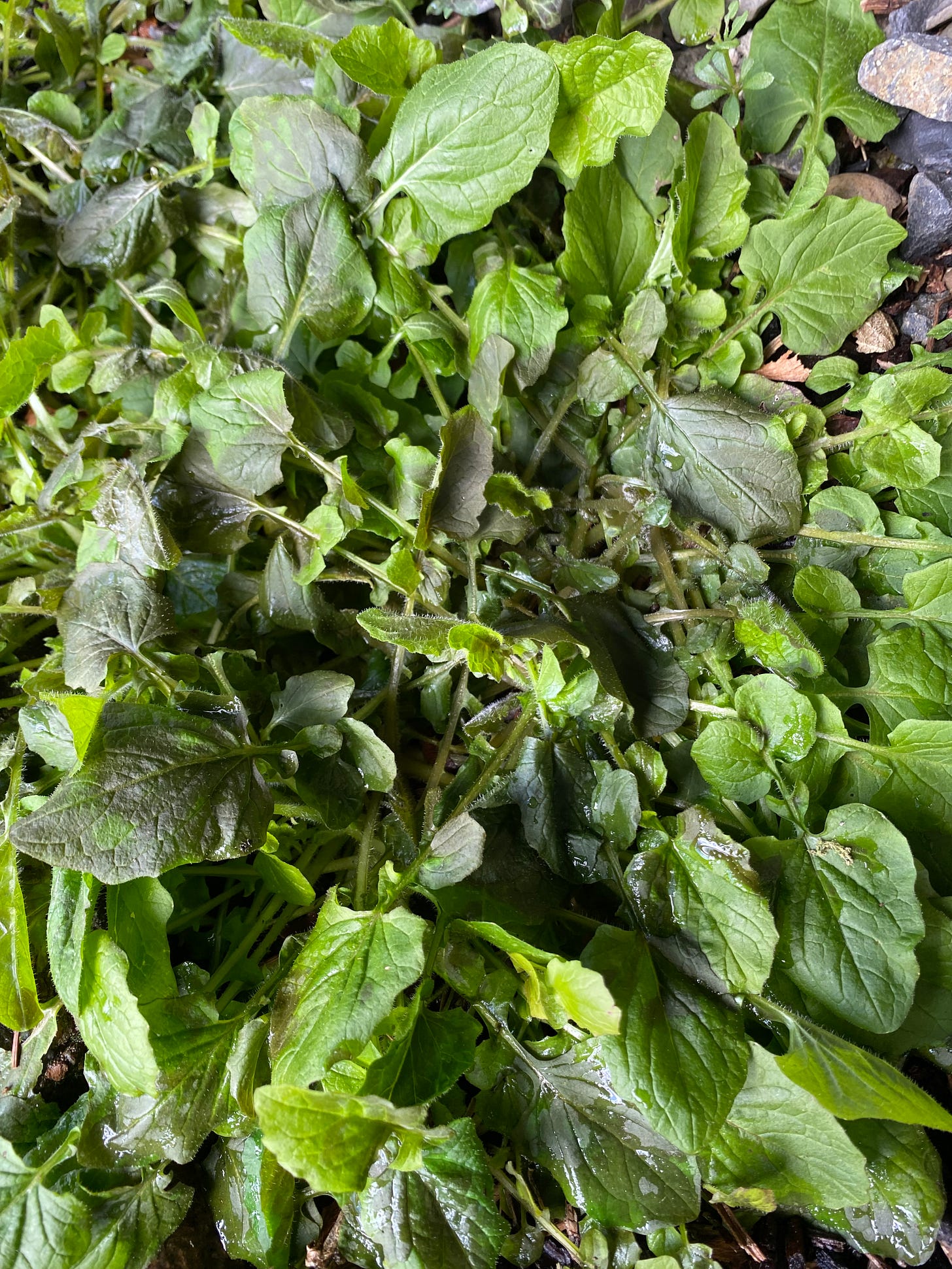Carrying a small pot of liquid death into my back yard a few minutes ago.
So many people start the gardening year like I start dinner on a Friday evening even though I know it’s going to end with takeout. If you hit your garden late, catching up is so much harder. Many of us when put into that situation will use chemical controls we’ve resolved not to use.
Because the weather has been colder than usual our garden calendar in the Willamette Valley is easily two weeks behind. When it warms though, our gardens will make up for lost time. That includes weeds. Now is the time to get out and control them.
There are a couple methods I resort to besides getting down on my knees and using my hands which leaves me wobbling like centenarian and my hands in pain for a week.
Like everyone, I love immediate results. Glyphosphate comes close and I’ve used my share of it but I have a trick that is 100% organic, non-toxic and immediate: boiling water.
I pour boiling water on my weeds. It immediately kills green leaves, even on hard to kill plants like grasses and ivy, and when you get it in the right spot, it will kill the root. I love that I can quickly see where I’ve treated and what I’ve missed. I use our electric tea kettle. Its narrow spout directs the flow efficiently. I only wish it held about five gallons at a time. Used pasta water (unsalted) works really well on the cracks in paved areas. Direct the flow of water onto the stem and root area of the weed to have the greatest chance of killing weeds. Don’t worry so much about coating all the foliage. If the root is dead, leaves will soon wither. And retreatment as needed is also non-toxic.
White kitchen vinegar will act similarly. I used it occasionally in commercial nursery production for weed control in gravel areas. Dilute it about ¼ and add a little dish soap to help break the waxy leaf cuticle and let the acetic acid enter and do its damage. Use this treatment in similar fashion to chemical based herbicide and aim for full coverage.
Both those treatments will kill desirable plants so you need to be careful where you put them into practice. The best method to remove weeds from your ornamental plants and keep them away is to do it by hand, early. Remove weeds before they disperse their seeds interrupting the generations. A common cool weather weed is bitter cress, Cardamine oligosperma. It can flower when it has just a few leaves and barely an inch tall. Let that happen and the next generation will be six inches tall and wide and smother your summer vegetables. Kill the young bitter cress now, before it flowers, remove it all by hand, hoe, or cover it with cardboard and your summer weeding chores will be cut exponentially. Same goes for weeds that only bloom in summer like dandelions. They are small and easily removed now. Even pests like crab grass are more easily removed now rather than later after they have fed on the sun’s rays for weeks and weeks.
However you do it, go out now to get control of your summer weed problems. It will leave you with plenty of time in summer to lay about and get a sunburn.




